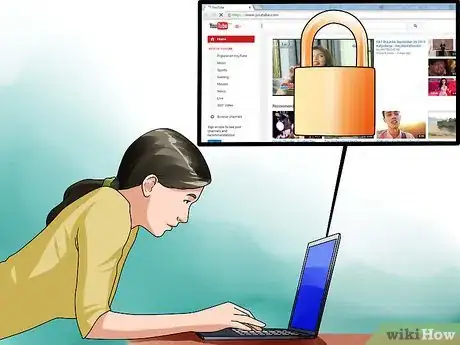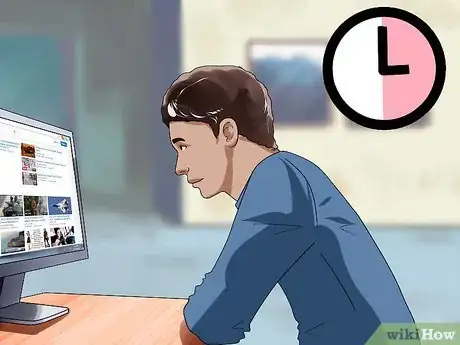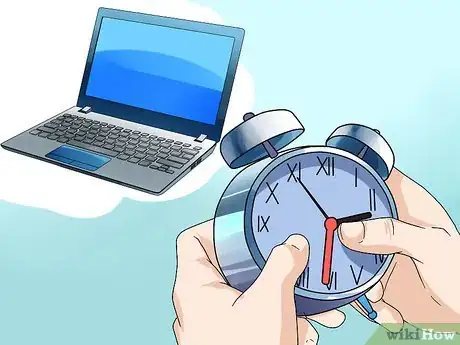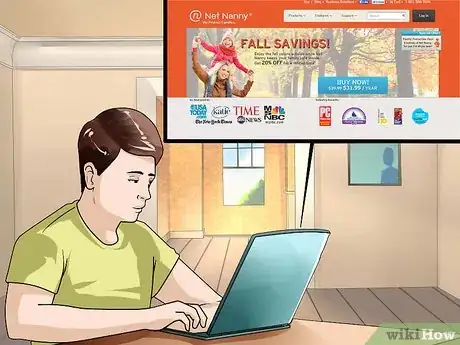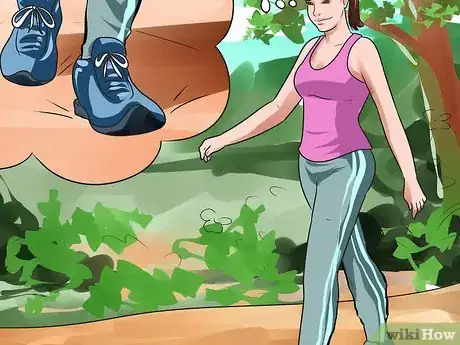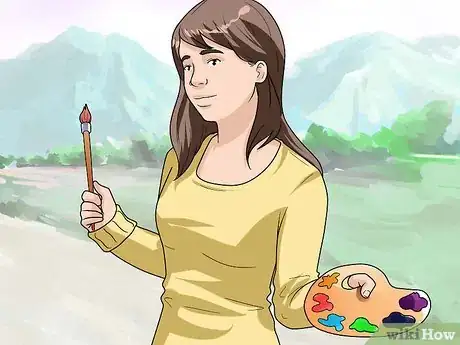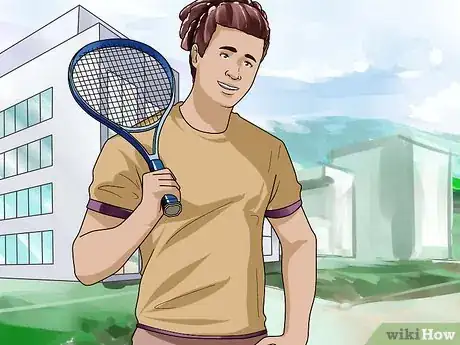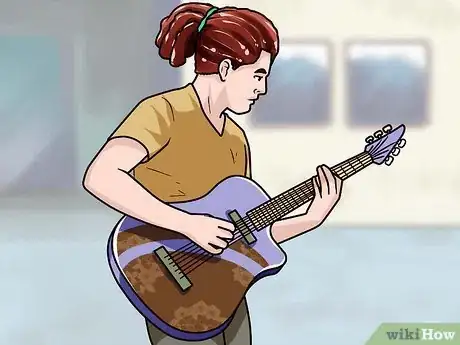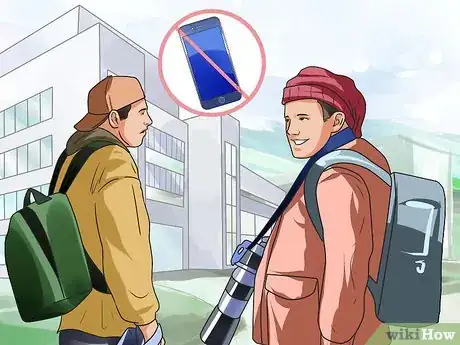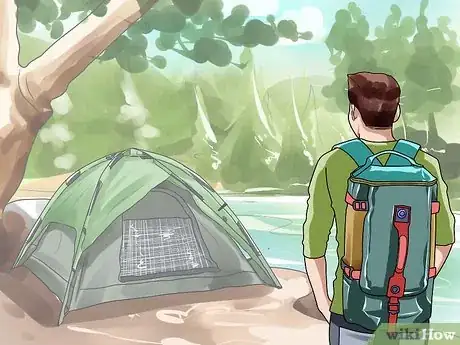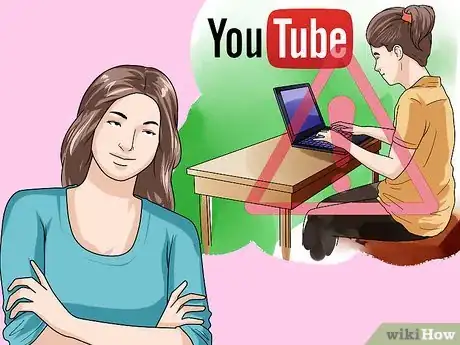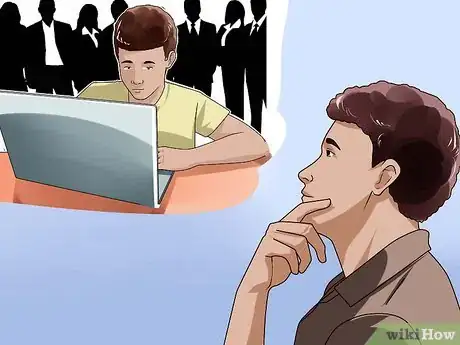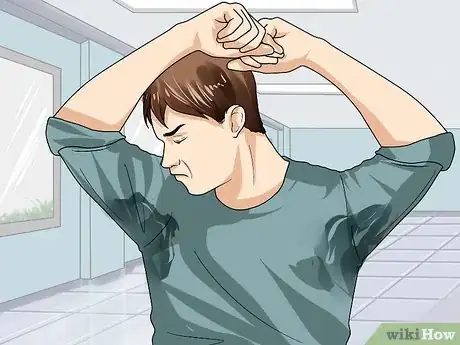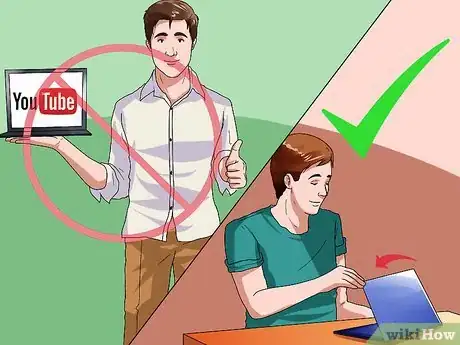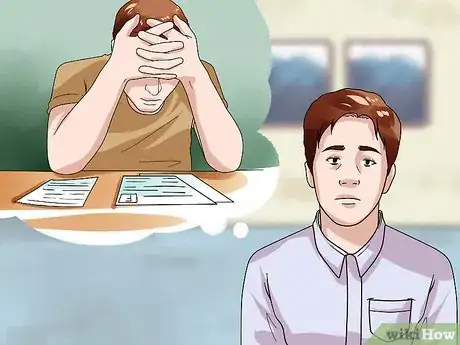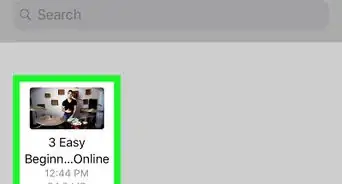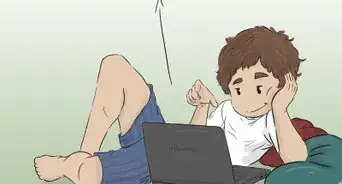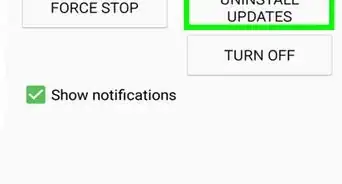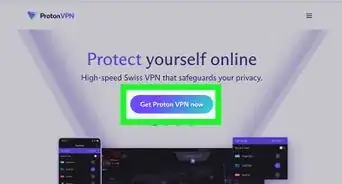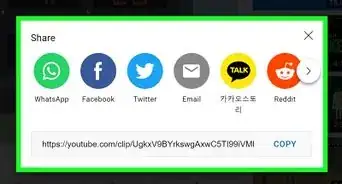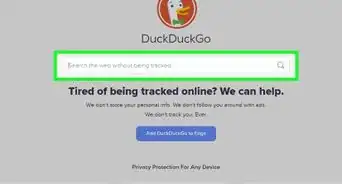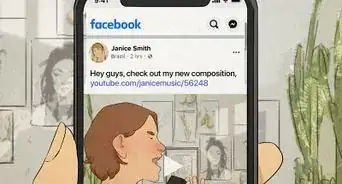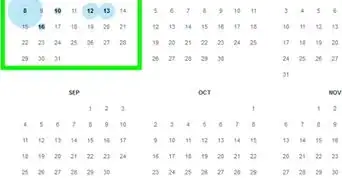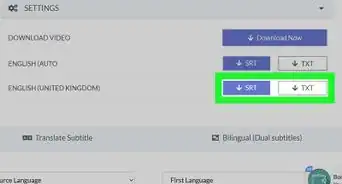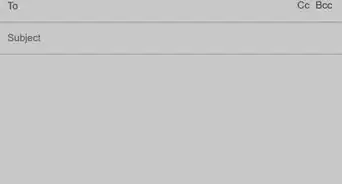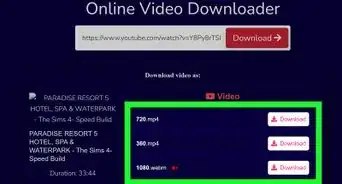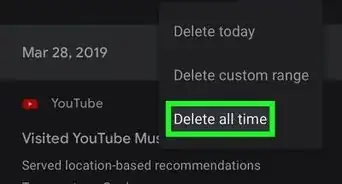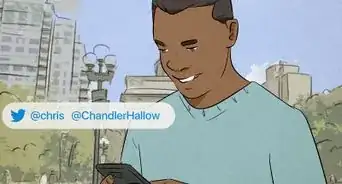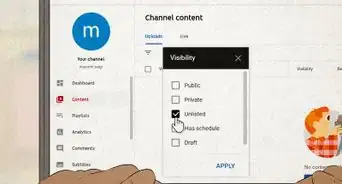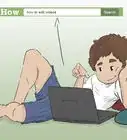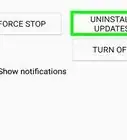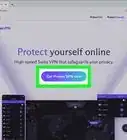This article was co-authored by Chloe Carmichael, PhD. Chloe Carmichael, PhD is a Licensed Clinical Psychologist who runs a private practice in New York City. With over a decade of psychological consulting experience, Dr. Chloe specializes in relationship issues, stress management, self esteem, and career coaching. She has also instructed undergraduate courses at Long Island University and has served as adjunct faculty at the City University of New York. Dr. Chloe completed her PhD in Clinical Psychology at Long Island University in Brooklyn, New York and her clinical training at Lenox Hill Hospital and Kings County Hospital. She is accredited by the American Psychological Association and is the author of “Nervous Energy: Harness the Power of Your Anxiety” and “Dr. Chloe's 10 Commandments of Dating.”
There are 14 references cited in this article, which can be found at the bottom of the page.
wikiHow marks an article as reader-approved once it receives enough positive feedback. In this case, several readers have written to tell us that this article was helpful to them, earning it our reader-approved status.
This article has been viewed 325,276 times.
Becoming addicted to YouTube is no joke. At first, you're watching a few random videos here and there, and after some time, you realize that you can't think of anything but getting to your computer and all the interesting stuff you could be watching. YouTube overuse can turn into a serious behavioral addiction, and begin to affect your life in negative ways.
Steps
Cutting Ties
-
1
-
2Limit your computer time. Put a strict personal limit on how much time you spend with your eyes on a screen- it’s generally considered unhealthy to spend more than four hours a day in front of a computer. Excessive computer use can lead to various issues, such as:
- Musculoskeletal problems.
- Headache.
- Repetitive stress injuries.
- Vision problems. [3]
- Give yourself permission to let other people know that you're limiting your screen time, too! For example, if a friend invites you to join an online community, thank them but let them know that you're trying to spend less time on your screen.[4]
Advertisement -
3Take control of your computer time. If your addiction is in the early stages, you may be able to gradually lessen your need by managing your computer time.
- If you have a smart home device (like Alexa), program it so it reminds you when it's time to go screen-free.[5]
-
4Get computer work done first. Within your allotted computer time, make sure you take care business first, before going on to YouTube videos. One of the benefits of breaking your addiction is that you will be in control of your time- rather than your addiction being in control of you.
- Get time management software. There are programs available that can track your time spent on different applications, so you can have an accurate idea of what you’re spending the most time doing (or not doing). [6]
- Use an “internet nanny” service, such as Net Nanny or K9 web protection. These are parental control programs which can set blocks on certain websites, or control the amount of time certain applications are available each day.
- Use the internet to further yourself, rather than getting swept up in entertainment for instant gratification. The internet is a gold mine of current information, history, and every other kind of knowledge there is. Use it to learn. [7]
Redirecting Yourself
-
1Redirect your need for gratification. Addiction happens when you start to need a particular stimulant to feel good or fulfilled. [8] Explore other, more positive and healthy alternatives to achieve the gratification you seek.
-
2Find a different hobby. Finding something else to do that will take your mind off all those oh-so-watchable videos is ideal.[9] [10] [11]
- Arts and crafts. You’ll find that making stuff, even if it’s just silly paper mache sculptures or origami, will not only help relieve your need for endless video gratification, but will make you feel much more fulfilled. [12]
- Painting or drawing. Creating is positive; watching endless videos is not. You can gain a sense of real fulfillment by engaging in creative arts, while simultaneously removing yourself from the situation (i.e. having nothing better to do, or even having a void in your life) that is causing your video addiction. [13]
- Reading. Read a paperback book or listen to an audiobook.[14]
-
3Play a sport. Getting outside and getting physical is one of the best alternatives to engaging in an unhealthy, addictive behavior.[15] Not only will your physical health improve, but getting involved in a team sport is beneficial for your social, mental, and emotional well-being. [16]
- If you don’t have friends interested in playing, you can always just show up at a local park with a basketball and shoot some hoops.
- Find a local intramural league for your sport of choice.
- Locate a local establishment for some shuffleboard, chess, checkers, or even “cornhole” if you’re not into the more physical sports.
-
4Play music. Musical creativity is another great alternative that can have benefits aside from helping with your addiction.[17] [18]
- Get friends interested in playing music with you. This is another way to benefit your social life while eliminating your addictive behavior. Playing music not only can help you treat your addiction directly, but also has benefits such as refining your time management and organizational skills, which can in turn help you manage what you do other than losing yourself in YouTube.
- If you used to play an instrument, dust it off and start practicing again.
- Take music lessons. Always wanted to sing better? There are lots of voice coaches out there.[19] [20]
- Rather than watching YouTube videos, tape yourself playing or singing and post videos of your creativity.
-
5Establish internet-free zones. When you’re addicted to a something on the web, such as YouTube, it’s a good idea to implement areas in your daily life that are completely free from the internet, or even better, all tech. [21]
- Leave the phone or tablet at home when you’re going out for a hike or a walk around the lake.[22] Even though we think we’re doing something solely outdoors or generally active, there are usually still opportunities, even, say, camping, for logging on for some of those addictive videos.
- When you go to lunch at work, take a magazine or book to the cafe instead of your tablet; even if you're planning to read a book on that Kindle Fire, it’s way too easy to start browsing the videos as well.
-
6Go on a tech vacation. There are actually camps where you can go with the sole purpose of freeing yourself from the need for internet, networking, and social media. [23]
- Getting out and having a week or even a day or two with absolutely no access can be great for breaking the cycle.
- Getting completely away from the ability to feed your addiction can help you control your use, rather than having to live completely tech-free. [24]
Recognizing the Problem
-
1Accept that you have an addiction. Just like with any addiction, the first step is recognizing you have a problem. YouTube attracts millions of viewers, and it can be easy to start spending much more time than you ever intended watching videos. [25] . Recognizing the early signs of addiction in yourself is crucial to treating the problem.
-
2Recognizing alienation. Are you pushing away friends or family, those who care about you?[26] When someone is addicted, be it to drugs, alcohol, video games, or even YouTube videos, one of the first behaviors they tend to exhibit is only wanting to be around those who enable their addictive behavior. [27]
-
3Examine your health. Addiction, even if it has nothing to do with substances, often causes one’s health to suffer.
- Has your bodily hygiene gotten worse? Have you begun to neglect your hair, nails, teeth?
- Look at your eating habits. Behavioral addiction can lead to less awareness of the sustenance you are putting into your body.
- Do you have sudden mood changes? Irritability, especially when you are unable to engage in your addiction, depression, and anger can be signs that you have a problem. [28]
-
4Be aware of excuses. Another sign that there is a problem is a tendency to make excuses or rationalize why it’s OK to continue with your addictive behavior.
- Non-addicts will see a negative behavior and want to eliminate it.
- If you have an addiction you may find yourself rationalizing why it’s not a problem-which can mean that it is. [29]
-
5Realize when there are consequences on your life. If you’ve begun to reach the middle or late stages of YouTube addiction, you will begin to experience a detrimental effect on other, more positive aspects of your life.
- Is your work suffering? Do you ever miss work as a result of your need for video streaming?
- Do you spend less time engaging in other physical activities? Often an addiction will lead to a sharp decrease in time spent exercising, going to events, or other social and physical activities. [30]
Expert Q&A
-
QuestionHow do I stop being addicted to the internet?
 Chloe Carmichael, PhDChloe Carmichael, PhD is a Licensed Clinical Psychologist who runs a private practice in New York City. With over a decade of psychological consulting experience, Dr. Chloe specializes in relationship issues, stress management, self esteem, and career coaching. She has also instructed undergraduate courses at Long Island University and has served as adjunct faculty at the City University of New York. Dr. Chloe completed her PhD in Clinical Psychology at Long Island University in Brooklyn, New York and her clinical training at Lenox Hill Hospital and Kings County Hospital. She is accredited by the American Psychological Association and is the author of “Nervous Energy: Harness the Power of Your Anxiety” and “Dr. Chloe's 10 Commandments of Dating.”
Chloe Carmichael, PhDChloe Carmichael, PhD is a Licensed Clinical Psychologist who runs a private practice in New York City. With over a decade of psychological consulting experience, Dr. Chloe specializes in relationship issues, stress management, self esteem, and career coaching. She has also instructed undergraduate courses at Long Island University and has served as adjunct faculty at the City University of New York. Dr. Chloe completed her PhD in Clinical Psychology at Long Island University in Brooklyn, New York and her clinical training at Lenox Hill Hospital and Kings County Hospital. She is accredited by the American Psychological Association and is the author of “Nervous Energy: Harness the Power of Your Anxiety” and “Dr. Chloe's 10 Commandments of Dating.”
Licensed Clinical Psychologist Carve out a specific amount of screen time each day rather than pulling out your phone constantly. A happy medium could be writing down all the errands and curiosities you'd like to search online in a notebook, and then giving yourself an hour later on to explore everything on the list.
Carve out a specific amount of screen time each day rather than pulling out your phone constantly. A happy medium could be writing down all the errands and curiosities you'd like to search online in a notebook, and then giving yourself an hour later on to explore everything on the list. -
QuestionWhat happens when I watch YouTube for 9 hours?
 Community AnswerYou strain your eyes, concern others about your welfare, lose a big chunk of your life and confirm that you have a problem.
Community AnswerYou strain your eyes, concern others about your welfare, lose a big chunk of your life and confirm that you have a problem. -
QuestionIf I don't watch YouTube all the time, but I watch it a lot, is it a problem?
 Community AnswerIf you feel like your YouTube habits are a problem, they likely are. If watching YouTube gets in the way of other aspects of your life, like meeting deadlines, doing chores or getting enough sleep, follow the steps in this wikiHow to stop being an addict.
Community AnswerIf you feel like your YouTube habits are a problem, they likely are. If watching YouTube gets in the way of other aspects of your life, like meeting deadlines, doing chores or getting enough sleep, follow the steps in this wikiHow to stop being an addict.
References
- ↑ https://www.themindfulword.org/2020/youtube-addiction/
- ↑ http://www.selfgrowth.com/articles/6-tips-to-remove-youtube-addiction
- ↑ https://www.thehealthsite.com/carpal-tunnel-syndrome/6-worst-health-problems-common-with-computer-use-sh214-117262/
- ↑ Chloe Carmichael, PhD. Licensed Clinical Psychologist. Expert Interview. 29 May 2019.
- ↑ Chloe Carmichael, PhD. Licensed Clinical Psychologist. Expert Interview. 29 May 2019.
- ↑ https://www.rescuetime.com/
- ↑ http://thenextweb.com/lifehacks/2011/08/28/do-you-have-an-internet-addiction-heres-how-you-can-control-it/
- ↑ https://www.psychologytoday.com/blog/addicted-brains/201306/behavioral-addictions-vs-substance-addictions
- ↑ Desiree Panlilio. Teen Life Coach. Expert Interview. 12 October 2021.
- ↑ Mental Health America. Non-Profit Organization. Expert Interview. 29 May 2019.
- ↑ Chloe Carmichael, PhD. Licensed Clinical Psychologist. Expert Interview. 29 May 2019.
- ↑ http://www.selfgrowth.com/articles/6-tips-to-remove-youtube-addiction
- ↑ http://www.utne.com/arts/art-therapy-ze0z1311zcalt.aspx
- ↑ Chloe Carmichael, PhD. Licensed Clinical Psychologist. Expert Interview. 29 May 2019.
- ↑ Mental Health America. Non-Profit Organization. Expert Interview. 29 May 2019.
- ↑ http://www.selfgrowth.com/articles/6-tips-to-remove-youtube-addiction
- ↑ Desiree Panlilio. Teen Life Coach. Expert Interview. 12 October 2021.
- ↑ http://www.selfgrowth.com/articles/6-tips-to-remove-youtube-addiction
- ↑ https://www.themindfulword.org/2020/youtube-addiction/
- ↑ http://www.mtna.org/
- ↑ https://www.yahoo.com/tech/five-ways-to-break-your-kids-screen-addiction-and-85327297754.html
- ↑ Mental Health America. Non-Profit Organization. Expert Interview. 29 May 2019.
- ↑ http://www.npr.org/sections/alltechconsidered/2013/07/05/198402213/at-tech-free-camps-people-pay-hundreds-to-unplug
- ↑ http://www.npr.org/sections/alltechconsidered/2013/07/05/198402213/at-tech-free-camps-people-pay-hundreds-to-unplug
- ↑ http://www.selfgrowth.com/articles/6-tips-to-remove-youtube-addiction
- ↑ Mental Health America. Non-Profit Organization. Expert Interview. 29 May 2019.
- ↑ http://www.healthline.com/health/addiction/recognizing-addiction#EarlyBehavior2
- ↑ http://www.healthline.com/health/addiction/recognizing-addiction#EarlyBehavior2
- ↑ http://www.healthline.com/health/addiction/recognizing-addiction#EarlyBehavior2
- ↑ http://www.healthline.com/health/addiction/recognizing-addiction#EarlyBehavior2
- ↑ https://www.psychologytoday.com/blog/addicted-brains/201306/behavioral-addictions-vs-substance-addictions
